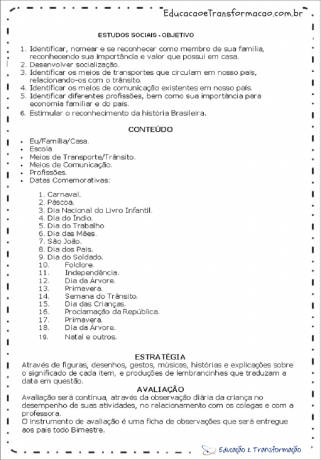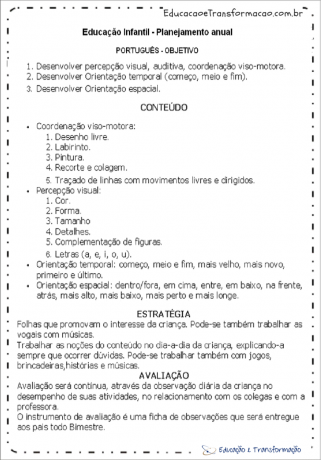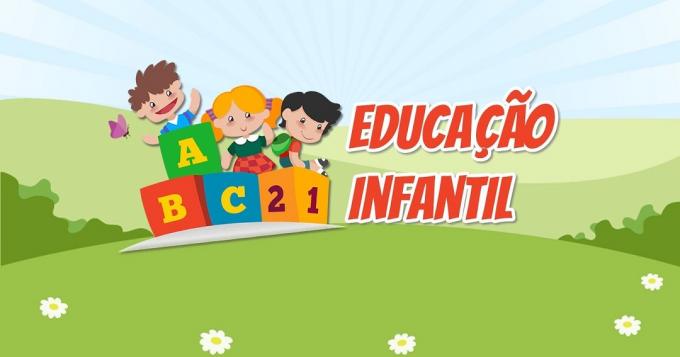
We selected in this post some suggestions for your Annual Planning for Early Childhood Education.
O planning it is a constant need in all areas of human activity. Planning is analyzing a reality and predicting alternative forms of action to overcome difficulties or reach desired goals.
In short, planning consists of anticipating and deciding on what we intend to accomplish; what do we do; how are we going to do it; what and how should we analyze the situation in order to verify that what we intend has been achieved. The plan, on the other hand, is the result, it is the outline of the conclusions resulting from the planning process, which may or may not take a written form.
See more at:
And it was with this in mind that we selected these models for your Pannual planning for Early Childhood Education, check out:
Index

Check out this super suggestion from Annual planning for early childhood education, ready to print and download free in PDF:
A child's development does not take place in a linear fashion. Changes occur gradually and are related to biological factors as well as provided by family and school environments-external factors.
During their life trajectory, the child experiences advances and setbacks, experienced in their development, in a particular way, acquiring autonomy.
It is necessary to monitor the construction of their personality, always respecting that, at each age, they have their own way of manifesting themselves. Trying to anticipate the steps or not to stimulate the child in their development can lead to conflicts in adult life.
Therefore, it is necessary to respect and know the stages of development of the 4-year-old child. Check out this full model of Annual planning for early childhood education – Preschool 1 in PDF:





See also:

Annual planning for early childhood education
All these aspects are articulated through an interdisciplinary pedagogical practice, always seeking the integration of activities, so that there is no loss of the real social value of each area of the knowledge.
The formation of habits and attitudes (hygiene, posture, good manners, food, leisure, clothing, rest, study, sociability and responsibility) aims stimulate the educational process of student independence and also facilitate their social integration and is integrated into all curriculum components during the year.
The content is based on the child's daily life and the activities are diversified by study area, but integrated through a topic of interest to the child or suggested by the teacher, who has full autonomy to create and recreate all of their activities.
In every administrative process, the role of the Teacher it's very important:
See too: Annual Planning First Year Elementary School

Goals
Check out the rest of the material in WORD below:
Download a wonderful yearly planning templates for early childhood education from WORD at the following link:
Subscribe to our email list and receive interesting information and updates in your email inbox
Thanks for signing up.
